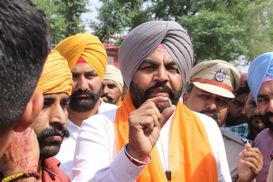
Picture for representational purpose only.
Simmi Waraich
Sudhir Kakar, who passed away recently, finally found his calling after meandering through engineering and then economics (PhD) when his fortuitous meeting with Erik Erikson in Ahmedabad revealed his life’s purpose to him! Erikson became his guru. Kakar trained in Freudian psychoanalysis at the Psychoanalytic Institute in Frankfurt with Erikson’s recommendation.
He went on to write 20 non-fiction and six fictional books and is known mainly for his original work on identity formation in Indians in relation to the culture that they grow up in. By culture, he alluded to the cultural unconsciousness which seeps into Indians of all castes, religions and hues and which encompasses myths that we encounter daily in the form of movies, festivals, folk songs and traditions.
Born in Nainital a year (1938) before Sigmund Freud died, he traversed the then undivided Punjab with his civil servant father. His idealisation of Gandhi as a pioneer of practical spirituality may have stemmed from an early attendance of one of Gandhi’s prayer meetings with an aunt. “Gandhi is not inferior to Christ in goodness and sanctity and a promise of sanity in the madness of this world,” he wrote in ‘The Seeker, A Novel’.
‘Inner World — A Psychoanalytic Study of Childhood and Society in India’ (1981) was Kakar’s major work on the development of a family or societal ego in Indians rather than an individual ego. Replete with allegorical references to popular myths, it purports to explain the lack of animosity in Indian women towards men despite their inferior status. An Indian woman’s identity is/was inextricably linked with the birth of her children as her role in the family and society was validated only then. It contains Sita and Draupadi’s quotes (of doubtful veracity, and written probably by men of those times) as partly the reason that women accept their status since they are the ego ideals for Indian women. It also talks of the Ganesha complex — an inverted Oedipus complex as the father envies the unique position of the male child vis a vis the mother.
In ‘Culture and the Psyche — Selected Essays’, he highlighted the high value in Hindu society on connectedness not only with the family, but society and the universe. The stronger fusion and extended dependence on the mother (and other family members) ensure that Indians grow up with more ambiguity and more accepting of dualities. In ‘Indians — A Portrait of a People’, which he co-wrote with his second wife Katharina, a scholar of contemporary religions, he emphasised again how the cultural part of our personal identity is wired before we attain adulthood. In ‘Shamans, Mystics and Doctors’, he elaborated on the role of traditional healers in Indian society. However, he faced criticism that he exoticised many of the traditional healers rather than producing a more nuanced expose.
His ‘Colours of Violence’, in which he explored religious conflict, is a pertinent commentary that is relevant to the current sociopolitical climate. It analyses how modernisation leads to heightened anxiety among people, who face loss of traditional customs and take solace in building a new cultural identity by aligning with groups such as the right and left wing. The ego ideal of the revered leader of the group represents past historical figures and a vision of a shared future, thus raising self-esteem of the followers of the group’s ideology.
Kakar was an ardent advocate of developing psychoanalysis and even a psychology of non-western cultures.
Joseph Heinrich said that WEIRD — Western Educated, Industrialised, Rich and Democratic — psychologists, sociologists and philosophers have been the producers of psychology which the rest of the world blindly followed. Kakar, along with thinkers such as Dr JS Neki and Dr NN Wig, wished to bring a more Indian context to psychotherapeutic interventions. His extensive writings are extremely relevant for understanding how culture and psyche mould one’s identity and personality, while some of his other works appear reductionistic and are open to debate.
It is surprising then that though most psychiatrists and psychologists read Freudian concepts, there is still no mention of Sudhir Kakar’s work on culture and psyche.
He will be remembered for his significant work, plus his erudition and humaneness.
Join Whatsapp Channel of The Tribune for latest updates.




























